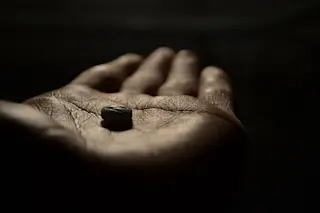Photo: flickr/Klesta
The placebo effect is an amazing phenomenon. As we have previously reported, placebos can help with everything from losing weight to improving your vision. And, according to this study, they may even help mend a broken heart. Here, researchers recruited participants who had been dumped in the last six months, and gave them a saline nose-spray that they claimed either was "effective in reducing emotional pain" (the placebo group) or a routine part of fMRI imaging (the control group). Next, the researchers conducted fMRI imaging of the subjects' brains while showing them photos of their ex-boyfriend/girlfriend, and asking the subjects to recall their breakups. The result? Subjects in the placebo nose spray group experienced less social pain when remembering their exes compared with those in the control. Let's just hope those participants were well compensated!
Frontal-brainstem pathways mediating placebo effects on social rejection
"Placebo treatments can strongly affect ...














